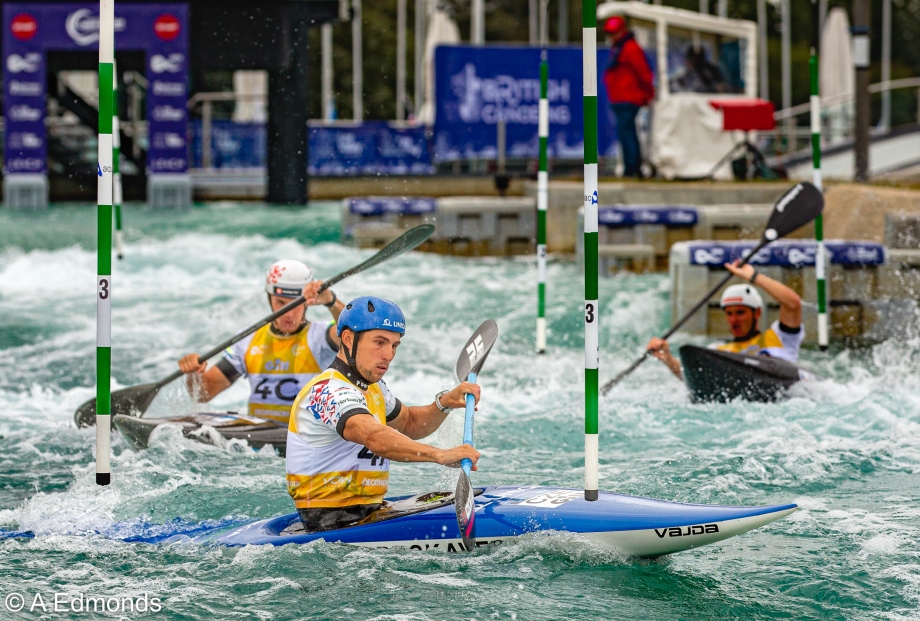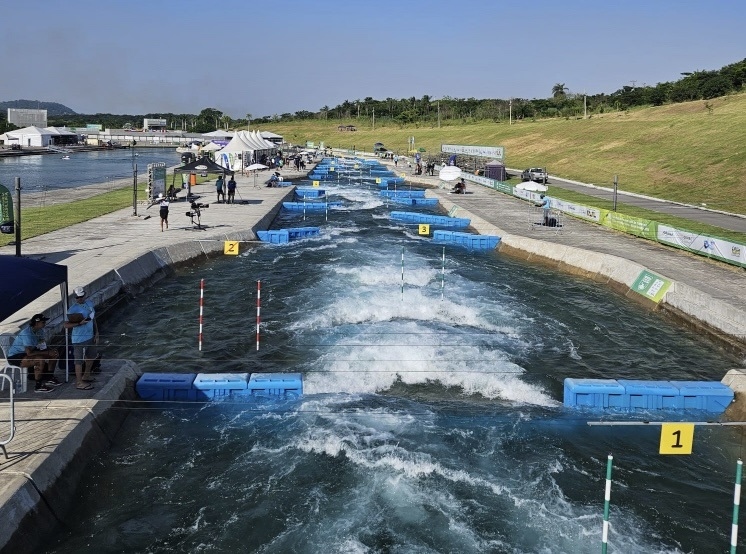The International Canoe Federation has highlighted the sustainability of Olympic venues during the Canoe Sprint and Canoe Slalom qualification process for Paris 2024.
Top-level Canoe Sprint competition returned to Tokyo last weekend when it staged the Asian Olympic qualifier.
The Sea Forest Waterway was the host of the Paris 2024 qualification tournament – three years after holding Canoe Sprint races during the Tokyo 2020 Olympics.
The venue was inaugurated in 2019 ahead of the Games that were delayed by one year due to the COVID-19 pandemic and remains an important sporting facility in Japan.
It was the latest Olympic venue to be used on the road to Paris 2024 as paddlers compete to earn quota places for their nation.
Four Olympic whitewater courses hosted qualifiers, including Tokyo’s Kasai Canoe Slalom Centre last October when it held the Asian Canoe Slalom Championships.
The Lee Valley White Water Centre – the London 2012 venue – hosted the 2023 ICF Canoe Slalom World Championships last September.
The Penrith Whitewater Stadium – the Sydney 2020 venue – held the Oceania Canoe Slalom Championships in January and the Deodoro Olympic Whitewater Stadium – the Rio 2016 venue – staged the Pan American Canoe Slalom Championships in March.

The Sydney International Regatta Course was the host of the Oceania Canoe Sprint Olympic qualifier in February.
“It has been fantastic to return to Tokyo, Rio de Janeiro, London and Sydney to witness the legacy of the Olympic Games,” said ICF President Thomas Konietzko.
“The qualification process for Paris 2024 has underlined how important these venues are to the local population as they continue attract high-level competitions.
“The Rio 2016 venue is a shining example of sustainability as it is used as a swimming pool by the city’s citizens as well as being a whitewater course for high-performance training and competition.
“It shows that whitewater courses are great assets to communities and support the continued development of Canoe Slalom.”
The ICF’s strategic vision, as outlined in its Fit for Future plan, places significant emphasis on leveraging whitewater venues to contribute to sustainable development goals.
These venues play a crucial role in generating revenue, promoting citizen welfare and accelerating climate and environmental objectives.
A total of 18 nations were represented during the Asian Canoe Sprint and Paracanoe Championships from April 18 to 21.
The event doubled up as a qualification tournament for the Olympics as Kazakhstan, Uzbekistan, the People’s Republic of China, Iran, Singapore, Vietnam and Chinese Taipei all earned quota spots.
Toshi Furuya, Chair of the ICF Canoe Sprint Committee, attended the event.

“It is very important to organise major events like this in Tokyo and make use of such great facilities,” said Mr Furuya.
“The atmosphere was fantastic.
“Our motto for Tokyo 2020 was ‘United by Emotion’.
“Our new motto is ‘Asia can be one through sport’.
“We are one as everyone respects each other and works together.
“We achieved that with fair play and great competition.
“I am sure that all the participants were happy and for many of them it was their first time on the course.
“When we had the Olympic Games in Tokyo, it was during the pandemic whereas this time we had so many spectators in the grandstand which was amazing.
“We had 800 volunteers – this is a great number.
“The Tokyo 2020 Games were very important to Japan.
“The Tokyo Metropolitan Government was very happy that the Japan Canoe Federation hosted such a big event and now we want to hold ICF major events like a World Cup in the near future.”
Check out the ICF's Whitewater Venues - Advancing Urban Sustainability report by clicking here.
Related links

